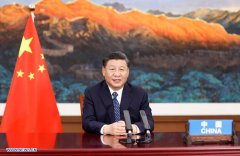Apple holds edge in app store trial despite nagging issues
Apple seems to be prevailing in an antitrust trial examining whether its mobile app store illegally skims profits from smaller companies
May 14, 2021, 12:21 AM
5 min read
Share to FacebookShare to TwitterEmail this articleFILE - This March 19, 2018, file photo shows Apple's App Store app. Apple seems to be prevailing in an antitrust trial examining whether its mobile app store illegally skims profits from smaller companies, despite nagging questions about its financial vise on people buying digital services on iPhones, iPads and iPods. (AP Photo/Patrick Semansky, File)
SAN RAMON, Calif. -- Apple seems to be prevailing in an antitrust trial examining whether its mobile app store illegally skims profits from smaller companies.
But the tech giant's apparent edge has been carved out amid nagging questions about the financial vise it holds people in when they buy digital services on iPhones, iPads and iPods.
If nothing else, the skirmish has sharpened the focus on the exclusive payment system that Apple has built into transactions occurring within apps installed on its family of mobile devices.
Apple has collected a 15% to 30% commission on those in-app purchases for the past 13 years, fueling a moneymaking machine that has helped the company increase its market value from about $150 billion in 2008 to more than $2 trillion today.
Those apps avoid a commission when their customers pay for their services through other options, such as a web browser. But Apple forbids apps from posting any links or making any other suggestions that steer people toward those other alternatives.
The anti-steering provision prompted Epic Games, the maker of the popular video game Fortnite, to sue Apple last year and set the stage for the trial now approaching the end of its second week in an Oakland, California, courtroom.
To prevail, Epic will have to persuade U.S. District Judge Yvonne Gonzalez Rogers that Apple’s app store has become a monopoly that has enabled the Cupertino, California, company to engage in price gouging. That argument will likely require Gonzalez Rogers to embrace Epic’s contention that the iPhone’s software and the app store are large enough to represent a market by themselves.
That has been a tough case to make, largely because the same commission rates have long been charged by similar stores operated by the leading video game consoles — Microsoft’s Xbox, Sony’s PlayStation and Nintendo’s Switch — as well as on smartphones and other devices running on Google’s Android system.
What’s more, Apple has never raised its commissions, and last year lowered them for companies that generate less than $1 million in annual sales on its products — a concession that applies to the overwhelming majority of the roughly 1.8 million apps now in its store.
Antitrust expert Herbert Hovenkamp, a law professor at the Wharton School of the University of Pennsylvania, said he doubts Gonzalez Rogers will agree with Epic’s narrow market definition. And that, he said, gives Apple the clear upper hand in the case so far.
“This is a case about market power, so even if there is bad behavior going on, it won’t make a difference if Apple isn’t (judged) a monopolist,” Hovenkamp told The Associated Press.
Epic on Thursday stepped up its efforts to turn the tide and prove Apple holds a monopoly on app distribution. While grilling Apple economic expert Loren Hitt, Epic rolled out evidence that many of the games that produce the most revenue aren’t available to play on consoles.
It remains to be seen whether any of that data will sway Gonzalez Rogers. But the judge has clearly been troubled by Apple’s anti-steering requirements, based on her comments and questions during the past few days of the trial.
Her concerns crystallized while one of Apple’s expert witnesses, Richard Schmalensee, was on the stand.
Schmalensee, formerly dean of the Massachusetts Institute of Technology’s Sloan School of Management, also defended American Express in an antitrust case challenging its prohibition on merchants recommending customers use other credit cards with lower transaction fees — a policy the U.S. Supreme Court upheld in a 2018 decision.









